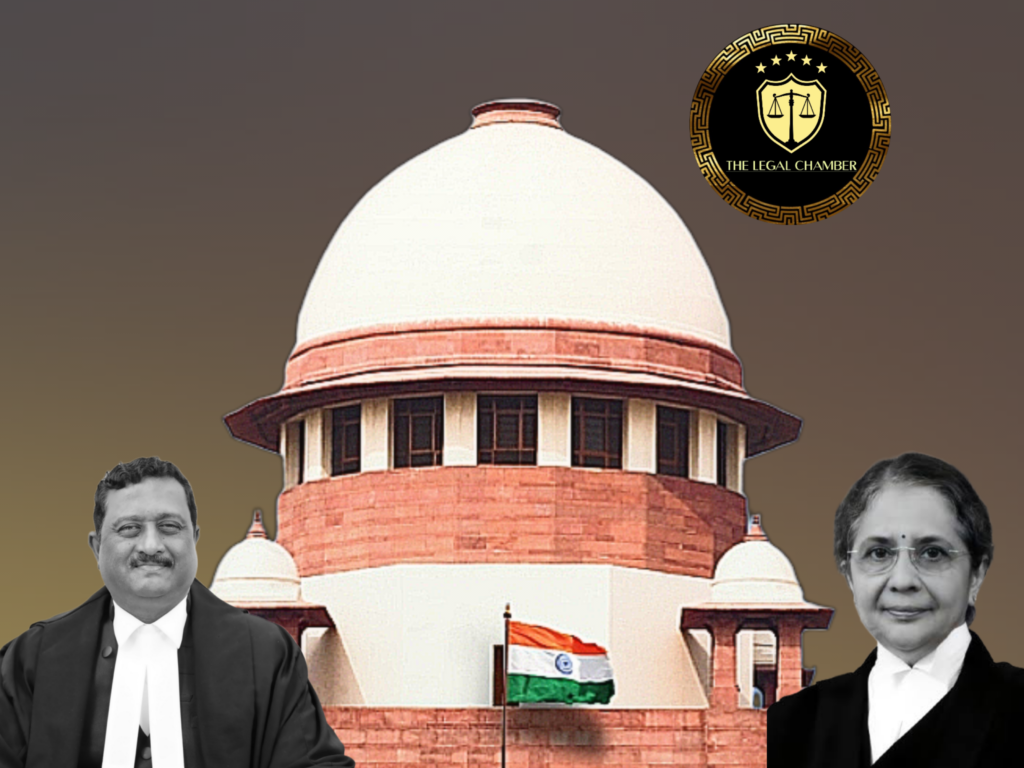
The Supreme Court upheld the Gujarat High Court’s order directing the release of a seized sonography machine, despite pending appeals under the PC & PNDT Act. The Court ruled that indefinite sealing of equipment is unjustified after the accused’s acquittal, balancing investigative needs with the respondent’s right to livelihood under Section 451 CrPC. It clarified that Section 29 of the Act does not mandate perpetual preservation of seized property during protracted litigation. The judgment emphasized pragmatic disposal of case property while safeguarding evidentiary interests through conditional data retrieval.
Facts Of The Case:
The case originated from a 2009 sting operation where respondent Dr. Kaushik Babulal Shah, a radiologist, was accused of violating the PC & PNDT Act by allegedly disclosing fetal gender at his imaging center in Ahmedabad. Authorities seized and sealed his sonography machine as evidence. While the trial court and sessions court acquitted Dr. Shah in 2012, the District Appropriate Authority continued retaining the machine, citing pending appeals. Dr. Shah approached the Gujarat High Court seeking release of the equipment after his acquittal. The High Court in 2012 ordered unsealing the machine, permitting authorities to retrieve data under supervision, noting the doctor’s livelihood depended on it.
Challenging this, the Authority appealed to the Supreme Court, arguing Section 29 of the PC & PNDT Act mandated preservation until final case disposal. The Supreme Court in 2025 dismissed the appeal, observing the machine had remained sealed for 16 years without justification. It upheld the High Court’s balanced approach – allowing evidentiary safeguards through supervised data retrieval while preventing indefinite deprivation of professional equipment post-acquittal. The judgment highlighted the unreasonable hardship caused by prolonged seizure and distinguished between preserving records under Section 29 and retaining physical equipment indefinitely.
Procedural History:
The case began with the sealing of a sonography machine during a 2009 raid under the PC & PNDT Act. The Gujarat High Court initially ordered its release in 2009, but this was reversed by a Division Bench, directing trial completion first. The Metropolitan Magistrate acquitted the respondent in 2012, ordering property return, which was confirmed by the Sessions Court. When authorities refused to release the machine, the respondent approached the High Court again in 2012, which permitted unsealing with safeguards for data retrieval. The District Authority’s recall application was dismissed, leading to their Supreme Court appeal in 2025. The Supreme Court dismissed the appeal, upholding the High Court’s orders and ending the 16-year sealing period. Throughout this 16-year litigation, the equipment remained unused while passing through multiple judicial forums – from magistrate court to sessions court, High Court (both single and division bench), and finally the Supreme Court, with the key question being the permissible duration of seizure under the PC & PNDT Act.
Court Observation:
The Supreme Court made several critical observations in its judgment. It emphasized that while Section 29 of the PC & PNDT Act mandates record preservation during pending proceedings, this cannot justify indefinite seizure of essential medical equipment. The Court noted the unreasonable deprivation of the respondent’s livelihood for 16 years, particularly after his acquittal by two courts. It distinguished between preserving evidentiary records and retaining physical equipment, holding that the latter must comply with Section 451 CrPC’s principles of reasonable custody duration. The judgment highlighted that the High Court’s conditional order – allowing data retrieval while releasing the machine – struck an appropriate balance between investigative needs and fundamental rights. Importantly, the Court observed that statutory interpretation should avoid absurd outcomes, and that procedural requirements cannot override substantive justice when equipment remains sealed beyond any reasonable period without justification. These observations reinforce the principle that evidentiary procedures must be proportionate and cannot perpetuate indefinite deprivation of professional assets.
Final Decision & Judgement:
The Supreme Court dismissed the appeal and upheld the Gujarat High Court’s orders directing the release of the sonography machine. It approved the conditional unsealing permitted by the High Court, which allowed authorities to retrieve data under supervision while returning the equipment to the respondent. The Court ruled that the 16-year retention was manifestly unreasonable, especially after the respondent’s acquittal, and that the PC & PNDT Act’s preservation requirements cannot mandate perpetual seizure of physical equipment. The judgment clarified that such prolonged deprivation violates principles of justice and proportionality, while affirming that safeguards for evidence preservation must be balanced against fundamental rights to profession and livelihood. The Court’s decision sets an important precedent against indefinite seizure of professional assets in regulatory cases.
Case Details:
Case Title: District Appropriate Authority vs Kaushik Babulal Shah & Anr. Citation: 2025 INSC 637 Criminal Appeal No.: Criminal Appeal No(s). 1969-1970 of 2017 Date of Judgment: 6 May 2025 Judges/Justice Name: Justice Bela M. Trivedi & Justice Prasanna B. Varale
Download The Judgement Here